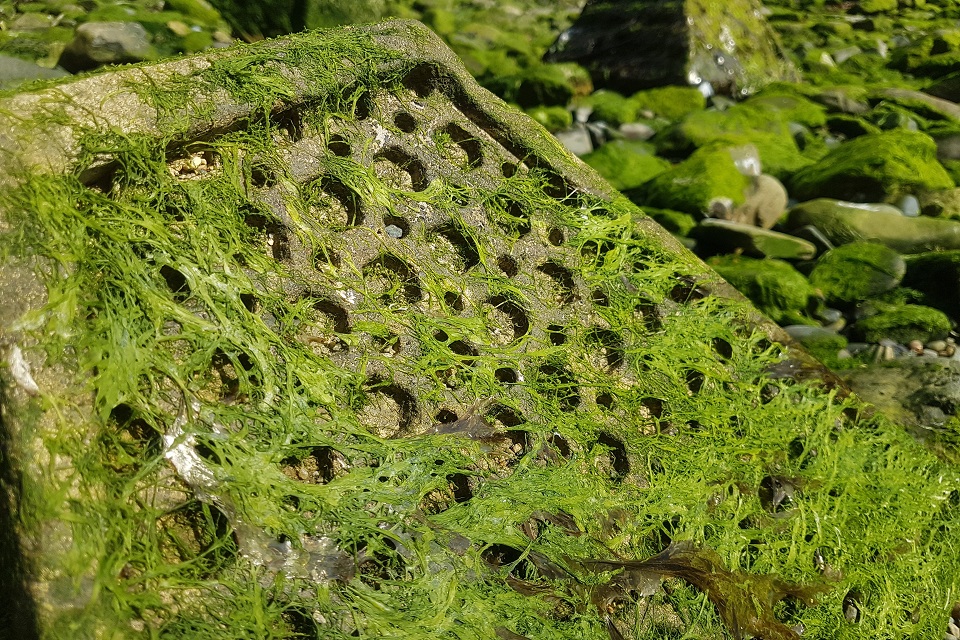The Environment Agency’s national strategy for Flood and Coastal Erosion Risk Management (FCERM) has an overarching principle of moving away from the narrow concept of protection to a broader one of resilience.
However, there will inevitably be locations where hard defences continue to be required to manage the risks of flooding and coastal erosion. The EA’s aim, wherever possible, is for future investment in these types of defences to deliver multi-functional benefits, such as increasing biodiversity and reducing carbon so there’s a need to re-think how traditional rock and concrete defences are designed and constructed.
One nature-based solution is to use low-carbon concrete units which are designed to function as habitat for marine life, as well as coastal armour. Such products have been developed, using materials that match the natural pH of seawater and incorporate features that replicate habitat, such as rockpools and the crevices found in shoreline rock.
It is envisaged that these ‘eco-blocks’ can be used in future FCERM schemes to construct defences such as breakwaters. At present, there is a need to trial the products in a high wave energy environment to determine which habitat features and block properties are best suited to this type of location.
So far the Environment Agency has been monitoring a trial of small-scale eco-blocks placed on the landward side of Newlyn breakwater, at the mouth of the Newlyn Coombe River in south west Cornwall. After a year in position, these blocks are showing encouraging signs of colonisation by marine life.



